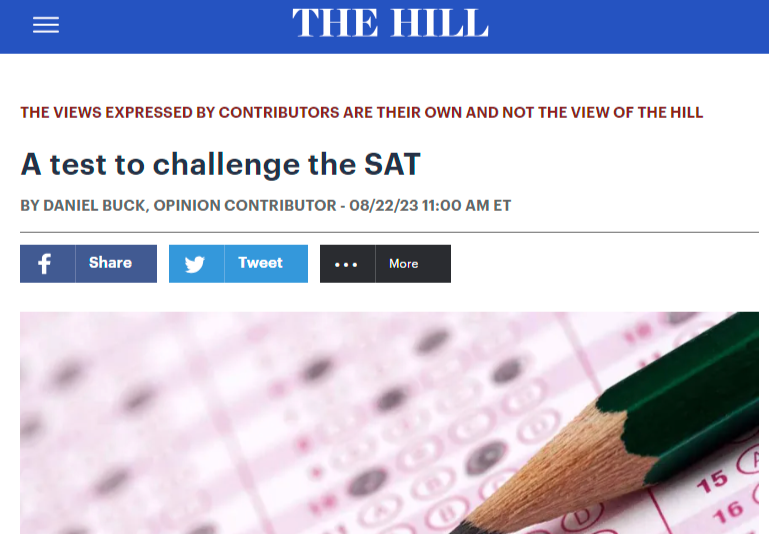In a digital age filled with endless distractions and shortened attention spans, the role of literature in education has never been more critical. Yet, the very system designed to measure and improve our students' performance might be doing more harm than good. In a recent Forbes article by Peter Greene, titled "The Atomization of Literature: How Standardized Testing Is Killing Reading Instruction," the author explores a deeply concerning issue plaguing our educational landscape.
The Current Landscape
Greene's article highlights how standardized testing, intended to evaluate students' understanding of literature, has paradoxically led to the "atomization" of literary works. Students are often asked to dissect and analyze texts in isolation, focusing solely on small, specific details while losing sight of the broader context, themes, and the joy of reading itself.
A Loss of Love for Reading
One of the most troubling consequences of this atomization is the potential loss of students' passion for reading. When literature becomes a series of tasks to complete and questions to answer, the joy of getting lost in a story or connecting with characters can be lost. As a result, instead of fostering a lifelong love for reading, standardized testing can create a generation of students who associate literature with stress and analysis.
The Importance of Holistic Reading Instruction
Greene advocates for a return to holistic reading instruction, where students are encouraged to engage with literature on a deeper level, exploring themes, narratives, and emotions. This approach not only helps students become better readers but also cultivates critical thinking skills and empathy.
Ethos Logos and Classical Education
One way to address this problem is to incorporate elements of classical education, particularly the teaching of values and virtues, and the reading of classical novels in their historical context. Here's how this approach can help solve the issue:
Teaching Values and Virtues:
Classical education strongly emphasizes the development of moral character and the cultivation of virtues such as wisdom, courage, justice, and temperance. By integrating these values into literature instruction, educators can encourage students to analyze texts and reflect on the ethical dilemmas faced by characters and the lessons learned from their actions. This approach fosters a deeper connection with literature as students relate the characters' moral struggles to their own lives, sparking meaningful discussions and critical thinking.
Contextualizing Classical Novels:
Reading classical novels in their historical context provides students with a broader perspective on the themes, social issues, and cultural norms of the time. This approach allows students to appreciate literature as a reflection of society's evolution, providing insights into the values and beliefs of different eras. By understanding the historical context, students can engage in more holistic discussions about literature and its relevance to contemporary issues. For example, reading "To Kill a Mockingbird" in the context of the civil rights movement can lead to discussions about racial injustice in both historical and modern contexts.
Encouraging Critical Analysis:
Classical education places a strong emphasis on critical thinking and dialectical reasoning. Integrating these principles into literature instruction encourages students to go beyond surface-level analysis and instead engage in thoughtful discussions about literary works' meaning, purpose, and implications. They learn to question, debate, and explore characters' complexities, themes, and plots, fostering a deeper and more meaningful connection to literature.
Promoting a Love for Learning:
Classical education often emphasizes a love for learning and the pursuit of knowledge for its own sake. By infusing literature instruction with this philosophy, students can be encouraged to explore and appreciate literature as an intellectual and artistic pursuit rather than a mere task to complete for testing purposes. This approach can reignite the joy of reading and the exploration of timeless literary classics.

